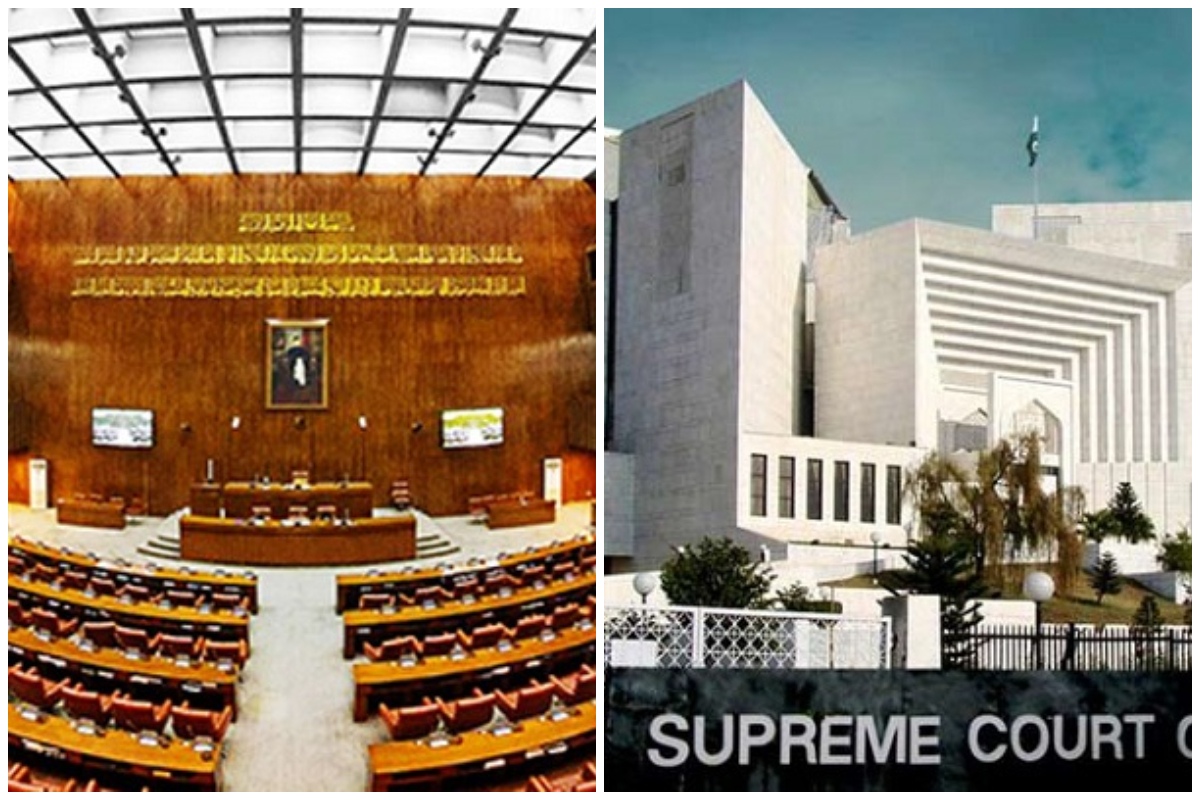ISLAMABAD: A bill was introduced in the Senate on Monday to amend the Supreme Court (Number of Judges) Act, 1997, proposing an increase in the number of Supreme Court judges from 17 to 21—excluding the chief justice—to “address the rising number of pending cases.
“The bill, titled “Supreme Court (Number of Judges) (Amendment) Act, 2024,” was presented by independent senator Mohammad Abdul Qadir from Balochistan.
Senator Qadir highlighted that the Supreme Court currently has over 53,000 cases pending, necessitating the addition of more judges.
The bill specifies that the number of judges, excluding the chief justice, should be 20. It explains that the Supreme Court’s four jurisdictions—original, appellate, advisory, and review—are diverse and demanding, contributing to a growing backlog of cases.
The bill also notes that the complexities of integrating the Federally Administered Tribal Areas (FATA) into Khyber Pakhtunkhwa further require additional judicial resources.
Speaking in the Senate, Senator Qadir called for the appointment of “at least 16 judges” to the Supreme Court, pointing out that numerous constitutional and financial cases remain unresolved due to the court’s limited capacity.
He also criticized Pakistan’s judicial system for ranking low globally.
While some opposition senators opposed the legislation, Federal Minister for Law and Justice Azam Nazeer Tarar supported it, suggesting that the bill be referred to the relevant committee. Tarar emphasized the backlog of cases, including capital punishment cases awaiting decisions since 2015, and pointed out that the Constitution does not specify a fixed number of judges, leaving it to parliament to determine.
In response to the backlog, two retired judges, Justice (retd) Tariq Masood and Justice (retd) Mazhar Alam Miankhel, were appointed as ad hoc judges for a year in July, following a recommendation by the Judicial Commission of Pakistan, which was later approved by President Asif Ali Zardari under Article 182 of the Constitution.
Pakistan Tehreek-e-Insaf (PTI) Senator Syed Ali Zafar criticized the bill, claiming it was suddenly introduced to increase the number of judges, which he described as an attempt to impose “judicial martial law.” He suggested that the government should start by increasing the judicial strength at the subordinate court level instead of the Supreme Court.
The PTI has decided to oppose any amendment bill regarding the judiciary, with the party officially instructing its members to vote against the proposed amendments.
Addressing the PTI’s opposition, Tarar questioned the party’s objections and noted that even the Peshawar High Court, where PTI is in power, had requested an increase of 10 judges, which the government is accommodating.
Senator Aimal Wali Khan of the Awami National Party (ANP) also participated in the debate, questioning the need for additional judges and the timing of the bill, which was presented by an independent senator rather than a government representative. He also inquired about the law minister’s commitment to introducing a bill on comprehensive legal reforms.
In response, Tarar stated that the federal government plans to introduce detailed reforms for subordinate courts in the near future.
Senate Chairman Yusuf Raza Gilani then referred the bill to the relevant committee of the upper house.



















